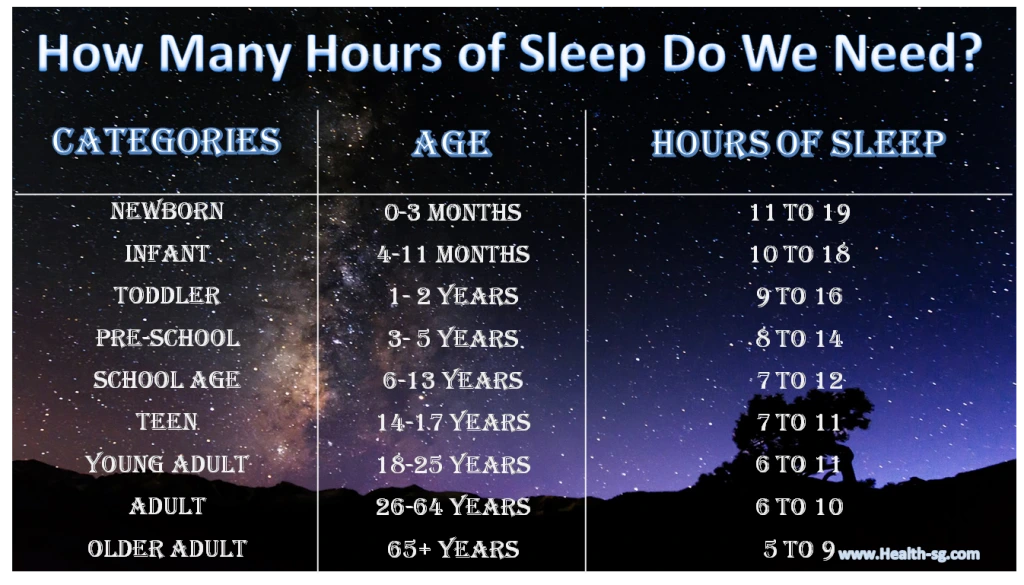Are you a software engineer burning the midnight oil? You might think those late-night coding sessions make you more productive, but have you ever considered the impact on your sleep?
The hours you spend resting are just as crucial as the hours you spend debugging. Discovering the right balance of sleep can unlock your full potential, boosting creativity and sharpening problem-solving skills. Curious about how many hours you should actually be sleeping?
Dive into this article to uncover the secrets of sleep and learn how optimizing your rest can transform your coding performance. Your brain will thank you!
Importance Of Sleep For Software Engineers
The digital age demands much from software engineers. They juggle complex tasks and tight deadlines. Yet, many underestimate the power of a good night’s sleep. Sleep is vital for maintaining peak performance and creativity. This section explores why sleep is crucial for software engineers.
Understanding The Role Of Sleep In Cognitive Function
Sleep boosts cognitive function. It sharpens memory and enhances problem-solving skills. Engineers face complicated challenges daily. Restful sleep helps them tackle these effectively. Sleep deprivation can lead to mistakes and missed details. A well-rested mind performs better and stays focused longer.
Impact Of Sleep On Emotional Well-being
Lack of sleep affects mood and emotional health. Engineers work in high-pressure environments. Stress levels can soar without adequate rest. Sleep helps regulate emotions and reduces stress. A stable mood improves teamwork and communication.
Boosting Creativity Through Adequate Sleep
Creativity often flourishes with enough sleep. Engineers need creative solutions for unique problems. Rest allows the brain to connect ideas in new ways. Dreaming can lead to innovative breakthroughs. Sleep nurtures the creative process.
Physical Health Benefits For Engineers
Good sleep supports physical health. It strengthens the immune system and lowers illness risk. Engineers often sit for long hours. Sleep helps repair and rejuvenate the body. A healthy body supports a sharp mind.
Sleep As A Productivity Enhancer
Quality sleep boosts productivity. Engineers produce better work with fewer errors. Fatigue hampers speed and efficiency. Rested engineers complete tasks faster with higher quality. Sleep is a key factor in achieving maximum productivity.
Factors Affecting Sleep Needs
Getting enough sleep is crucial for anyone, including software engineers. But how many hours of sleep do you really need? It’s not a one-size-fits-all answer. Various factors influence your sleep needs. Let’s dive into these factors to help you determine what’s best for you.
Age And Sleep Requirements
Age plays a significant role in determining how much sleep you need. Young adults generally require more sleep than older adults. If you’re in your twenties, eight hours might be ideal. As you age, your sleep needs might decrease slightly. But don’t fall into the trap of thinking that less sleep is better just because you’re older. Quality rest is important, regardless of age.
Individual Health Considerations
Your health is another critical factor. If you’re dealing with health issues, your body might need extra rest to recover. Consider how you feel after different amounts of sleep. Are you refreshed or still tired? Listen to your body. Prioritize sleep if you’re sick or under the weather. It can make a significant difference in your recovery and overall well-being.
Workload And Stress Levels
Let’s talk about work and stress. High stress levels and a heavy workload can affect your sleep quality. If you’re burning the midnight oil coding, you’re probably not getting the rest you need. Are late-night debugging sessions cutting into your sleep? It’s easy to sacrifice sleep for work, but it’s not sustainable. Balance is key. Prioritize sleep to maintain productivity and avoid burnout.
Ultimately, finding the right sleep balance involves understanding these factors. Ask yourself: Are you aligning your sleep habits with your age, health, and work demands? Making informed adjustments can lead to improved focus and efficiency in your software engineering tasks.
Recommended Sleep Duration
Software engineers often face demanding schedules and mentally challenging tasks. Adequate sleep is crucial for maintaining focus, creativity, and productivity. But how many hours should a software engineer sleep? Understanding the recommended sleep duration can make a significant difference in overall well-being and job performance.
General Guidelines
Experts suggest that adults need 7-9 hours of sleep each night. This range ensures physical and mental health. It helps manage stress and enhances cognitive functions. Sleep affects memory, problem-solving skills, and mood. Quality sleep is as important as duration.
Tailoring Sleep To Personal Needs
Individual sleep needs can vary. Some engineers may thrive on 7 hours. Others may need 9 hours for optimal performance. Consider lifestyle, workload, and stress levels. Listen to your body and adjust accordingly. Track sleep patterns to find your ideal duration. A consistent routine can improve sleep quality.

Credit: dallastmjdr.com
Impact Of Sleep On Productivity
Software engineers need around 7-9 hours of sleep for optimal productivity. Sleep helps clear the mind and improves concentration. A well-rested engineer can solve problems more efficiently and make fewer errors.
Sleep plays a critical role in our daily lives, directly impacting productivity and efficiency. As a software engineer, you might wonder how your sleep patterns affect your work output. The connection between sleep and productivity is undeniable, and understanding it can lead to better performance and fewer mistakes on the job.
Cognitive Function And Performance
Adequate sleep is crucial for maintaining cognitive function. Lack of sleep can lead to slower thinking and reduced attention span, making it hard to concentrate on tasks like coding. Imagine trying to debug a complex program with a foggy mind—frustrating, isn’t it?
Consistent sleep improves memory retention, which is essential for software engineers who constantly learn new languages and technologies. A well-rested mind can absorb and recall information more effectively. Have you ever noticed how after a good night’s sleep, you solve a problem that seemed impossible the day before?
Error Rates And Problem Solving
Sleep deprivation can significantly increase error rates in your work. When you’re tired, simple coding errors that you’d usually spot instantly can slip through, leading to more bugs and longer work hours. This results in a vicious cycle of fatigue and reduced productivity.
On the other hand, getting enough sleep enhances your problem-solving abilities. Your brain can think creatively and come up with innovative solutions. Have you experienced waking up with fresh ideas or solutions to yesterday’s coding conundrums?
Incorporating regular sleep into your routine is an actionable step to boost productivity. Prioritize sleep, and you’ll likely notice a positive change in your work performance and problem-solving skills. How many hours of sleep do you think could transform your productivity?
Strategies To Improve Sleep Quality
Software engineers often face tight deadlines and complex projects. This can lead to sleepless nights. Improving sleep quality is crucial for productivity and well-being. It involves creating a restful environment and balancing work and life. Here are strategies to enhance sleep quality.
Creating A Sleep-friendly Environment
A comfortable bedroom promotes better sleep. Start by adjusting the room temperature. Cooler temperatures help the body relax. Use blackout curtains to block out light. They create a dark setting that signals sleep time. Invest in a quality mattress and pillows. Comfort is key for uninterrupted sleep. Remove electronic devices from the bedroom. They emit light that disrupts sleep patterns.
Managing Work-life Balance
Balance between work and personal life is essential. Set clear boundaries for work hours. This helps prevent burnout. Allocate time for hobbies and relaxation. These activities reduce stress. Practice relaxation techniques like meditation or deep breathing. They calm the mind before sleep. Schedule regular breaks during work. Short breaks boost focus and reduce fatigue. Limit caffeine intake in the afternoon. It affects sleep later at night.

Credit: www.linkedin.com
Common Sleep Challenges For Engineers
Software engineers often face unique sleep challenges. Late-night coding sessions, project deadlines, and unpredictable work hours can disrupt their sleep patterns. This can lead to sleep deprivation, affecting productivity and health. Let’s explore some common sleep challenges faced by engineers and how to address them effectively.
Overcoming Night Owl Tendencies
Many engineers prefer working late at night. Quiet hours often boost creativity and focus. But staying up late can disrupt the sleep cycle. This can lead to fatigue and decreased performance during the day. To overcome this, set a consistent bedtime. Use an alarm to remind you to wind down. Dim lights and avoid screens before bed. Create a relaxing bedtime routine. This helps signal your body that it’s time to sleep.
Dealing With Irregular Work Hours
Software engineers may work on projects with tight deadlines. This often means irregular work hours. This unpredictability can disturb regular sleep patterns. To manage this, prioritize sleep during busy periods. Take short naps if needed during the day. Make your sleeping environment comfortable and dark. Use sleep masks or blackout curtains. Maintain a consistent sleep schedule as much as possible. This helps stabilize your body’s internal clock.
Technology’s Role In Sleep Patterns
Technology influences sleep patterns significantly. It shapes how software engineers rest. Devices and screens have become integral to daily life. They affect sleep in various ways. Understanding these impacts can help improve sleep quality. Let’s explore technology’s role in sleep.
Screen Time And Sleep Disruption
Screens emit blue light. This light affects melatonin production. Melatonin helps regulate sleep cycles. Excessive screen time before bed disrupts sleep. Engineers often work late into the night. They face challenges with maintaining healthy sleep routines. Reducing screen exposure can enhance sleep quality.
Smartphones, tablets, and laptops are commonly used. Prolonged use keeps the brain active. This affects the ability to wind down. Establishing a screen-free bedtime routine can improve rest. Consider limiting device use one hour before sleep.
Sleep Tracking Apps And Devices
Sleep tracking apps monitor sleep patterns. They provide insights into sleep quality. Wearable devices are popular among engineers. They offer valuable data on sleep cycles. These tools help identify sleep problems.
Understanding sleep data can lead to better habits. Engineers can adjust routines based on insights. This aids in achieving optimal rest. Tracking sleep encourages awareness of sleep health. It promotes better lifestyle choices.
Frequently Asked Questions
How Many Hours Do Software Engineers Sleep?
Software engineers typically sleep 6 to 8 hours per night. Sleep patterns can vary based on workload and personal habits. Maintaining a healthy sleep schedule is essential for productivity and mental well-being. Balance between work and rest helps optimize performance and creativity.
Can You Make $500,000 As A Software Engineer?
Yes, earning $500,000 as a software engineer is possible. High-demand skills, experience, and working at top companies can lead to such salaries. Roles like senior engineer, manager, or specialized positions often offer higher pay. Networking and continuous skill enhancement can boost earning potential significantly.
Is Software Engineering A 9-5 Job?
Software engineering isn’t always a strict 9-5 job. Flexibility varies by company and project demands. Many engineers enjoy flexible hours, especially in tech companies. Deadlines or complex tasks might require extra time beyond typical office hours. It’s crucial to discuss work expectations during job interviews.
Is 6 Hours Of Sleep Enough For An Engineering Student?
Six hours of sleep may not be optimal for engineering students. Most adults need 7-9 hours for peak performance. Consistent sleep deprivation can affect focus, memory, and learning. Prioritizing sleep enhances academic success and overall well-being. Adjust your schedule to ensure adequate rest for better productivity and health.
Conclusion
Quality sleep boosts a software engineer’s productivity and health. Aim for seven to nine hours of sleep each night. It helps improve focus, creativity, and problem-solving skills. Good sleep also reduces stress and prevents burnout. Remember, sleep is essential, not optional.
It’s crucial for maintaining a balanced work-life routine. Consistent sleep habits make a big difference. Try to stick to a regular sleep schedule. A well-rested mind is sharper and more efficient. Invest in rest. It pays off in the long run.
Prioritize your sleep to enhance your career and well-being.

